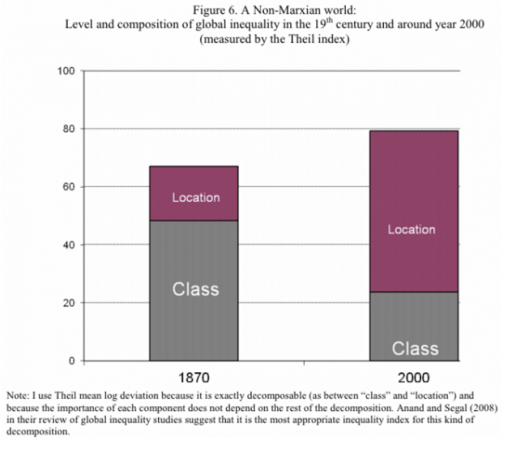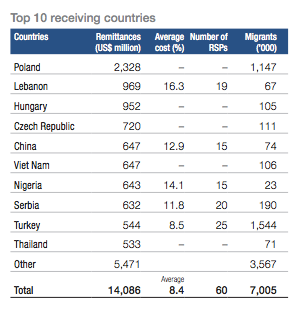I need to get some of this stuff out of my head to make some space in there for my actual day job. Since the clusterfuck David Goodhart
book-copy-and-pastes op-eds started coming out a few weeks ago my head has been all fogged up with rage. Half of the frustration is simply how poorly he structures his arguments.
So here is some structure.
At the highest level there are two things to care about
1. The impact of policy (this is the utilitarian, consequentialist angle)
2. The
Kantian ethics (what is a just process? we should care about the means as well as the ends)
Point 2, made repeatedly by Michael Clemens and others in the open borders camp, is that regardless of what the consequences of immigration are, individuals have rights, and states shouldn't be able to prevent people from leaving countries. As a Brit with some education, I have the right basically to live wherever I want. The same does not apply to smarter and harder working people than me who happen to be born in South Sudan, or most developing countries. In technical terms, this is called "fucked up."
Back to point 1 - there are three areas of concern
1.1 - The impact on the receiving community
1.2 - The impact on the migrant
1.3 - The impact on the sending community
Now, the strongest evidence is clearly on 1.2 - there are massive overwhelming positive impacts for the migrants themselves, who can increase incomes by orders of 1000% overnight.
The weakest evidence is on the other two points. There are reasons, theoretical and empirical, to think that immigration can have both positive and negative impacts on communities at large.
On 1.1 - perhaps the strongest evidence amongst the lot, is that the labour market impacts on receiving communities are not large (they did
not took our job). There isn't a lot of evidence on the impact on public services and the like - though on average the foreign-born living in Britain are larger net contributors to public finances than the native born. So we are left with something vague about identity and community (more on this in another post).
On 1.3 - there is strong evidence of positive impact through remittances - remittances are substantially larger than foreign aid flows. There isn't much evidence of a brain drain, and actually evidence pointing the other way towards a "brain gain." Neither is there any evidence of a damaging impact on political reform. On the contrary, there are reasons to think that diaspora can help fund and influence reform movements more effectively from outside a country where they are not subject to political oppression. More from
Claire Melamed here.
So to conclude, strong positive evidence of positive impacts for migrants and receivers of remittances, and then a bunch of weak vague stuff about community and governance. Add to that, the ethical or rights-based arguments.
And finally back to Goodhart, and his line that we should not care about people from Burundi more than people from Birmingham. But do we really need to care about them
more to be in favour of immigration? From my reading of the evidence, I don't think that immigration does impose a net cost on Britain, but even being generous and assuming it did, I would weight that impact to be of the order of 1/10th of the positive impact to the migrant. Caring about people from Birmingham is fine, but the question is
how much more should you care about them than someone from Burundi. I would image that there is some ratio at which Goodhart would support imposing a cost on a Brummie for a gain to a Burundian. What if we could make a Brummie worse off by £1 to increase the welfare of a Burundian by £10 billion? Or is it really never acceptable for British government policy to reduce the welfare of a British person by any amount, no matter how small, in order to increase a foreigner's welfare, no matter how large the gain? Not even for £10 billion?
Martin Wolf does make the case for a zero weight, which is at least a coherent and explicit position on the issue, even if I do think it is abhorrent. Elsewhere, in a long and math-y blogpost
YouNotSneaky estimated that for Mexican-US immigration, you have to value a Mexican at less than 1/20th of an American to be against immigration.
Do you care about foreigners less than locals? What's your number? Exactly how much less? Are foreigners half a local person? A tenth? A hundredth?


